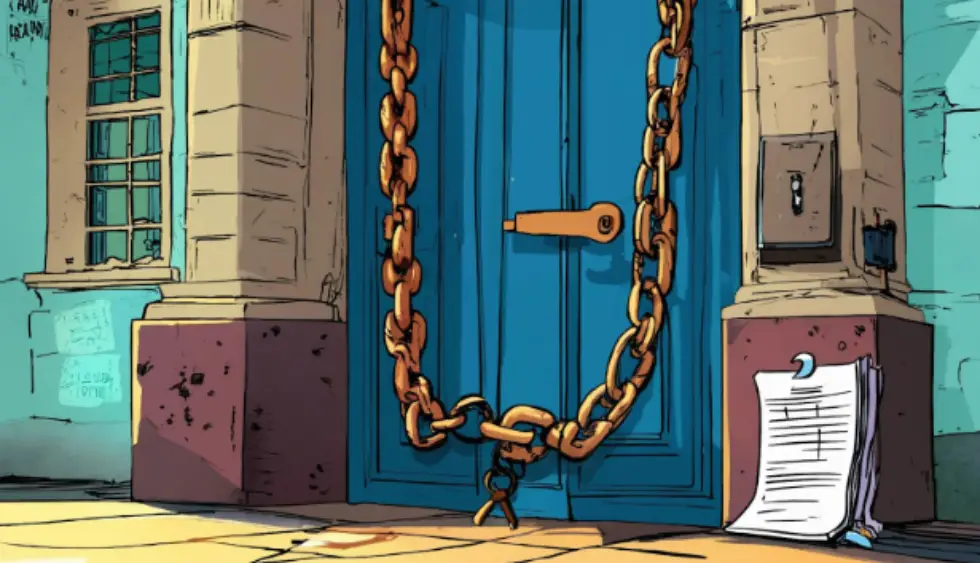When the COVID-19 pandemic began in 2020, higher education institutions throughout the United States started adopting a progressive standard of education that advocates had demanded for decades: they began dropping standardized tests such as the SAT and the ACT as requirements for admissions. As was the case with so many other pandemic-era societal adaptations — government economic relief that lowered poverty rates, a pause in student loan repayments, free vaccines, an end to public library late fees — this offered an opportunity for a grand experiment in promoting equality.
The move to drop the tests can actually be traced to a time before the pandemic, but it was accelerated by students being unable to travel to testing sites during the lockdowns. Further, the mass racial justice uprising of the summer of 2020, prompted by the killing of George Floyd, pressured elites into embracing ideas rooted in equity.
Many celebrated the spurning of tests as the right direction for institutions that have ensured the maintenance of white supremacist patriarchy since their inception. But as elite universities such as Yale, Harvard and Caltech recently reneged on the promise of leveling the playing field by returning to test requirements, are those celebrations premature?
Standardized testing is racially discriminatory
Research has confirmed over and over that requiring students to take the SAT or ACT weeds out women, people of color and other marginalized groups. As a physics and astronomy undergraduate at the University of Texas at Austin, I participated in efforts in the early 1990s to address how such tests undermine women’s entry into STEM fields (science, technology, engineering and mathematics). I was a perfect example: a straight-A student whose academic record had only one stain — a mediocre SAT score which severely narrowed my college options.
As Robert Schaeffer, director of public education at FairTest: National Center for Fair & Open Testing, one of the leading advocacy groups against required SAT and ACT testing, told The 19th, “Despite the fact that young women get lower scores on the test than young men, they earn higher grades when matched for identical courses in college than the boys.”
Black and Latino students routinely score lower on the SAT’s math section compared to whites and Asians. This is not evidence of a racial difference in educational ability and intelligence. Scientists agree that there is none. Rather, it is evidence of racial bias in the test.
There is a similar bias based on class. Wealthier students routinely do better on the test than low-income students. This is no surprise, given the lucrative industry built on test preparation, helping students navigate the notoriously tricky test in exchange for hundreds or even thousands of dollars. The fact that SAT scores are used to determine many a student’s eligibility for scholarships further entrenches class bias.
Indeed, because of the SAT’s racial and class bias, the Los Angeles Times reported in 2019 that officials at the University of California were convinced “that performance on the SAT and ACT was so strongly influenced by family income, parents’ education and race that using them for high-stakes admissions decisions was simply wrong.”
Standardized testing is regrettably back, but not everywhere
By 2021, in response to a lawsuit brought by the Compton Unified School District, the entire University of California system permanently dropped tests as requirements for admissions. The move seemed to herald a new era in higher education, and indeed, data from the few years that this experiment has been in place shows promise in opening up higher education to historically excluded communities.
But, as advocates of racial, gender and economic justice painstakingly chipped away at the exclusivity of higher education, conservatives predictably pushed back. A wave of right-wing attacks in recent years has taken aim at affirmative action admissions policies, the teaching of Critical Race Theory and Diversity, Equity, and Inclusion campus initiatives.
It was only a matter of time before elite institutions such as Harvard, Yale and Caltech backslid on their commitment to equity by reverting back to SAT requirements. Opinions of elite commentators such as The New York Times education editor David Leonhardt helped validate this decision. Leonhardt wrote, “Standardized tests have become especially unpopular among political progressives, and university campuses are dominated by progressives.”
He highlighted a 2023 paper by an organization called Opportunity Insights to justify reinstating test requirements. The paper concluded that “SAT/ACT scores and academic ratings are highly predictive of post-college success.” It was precisely the ammunition elite institutions were waiting for. Harvard specifically cited the paper in its reversal on testing.
But, according to Schaeffer, the conclusions that Opportunity Insights comes to are flawed. He told The New York Times, “[W]hen you eliminate the role of wealth, test scores are not better than high school G.P.A.” In a report responding to Leonhardt and Opportunity Insights, FairTest accused researchers of omitting student demographics such as “family income, parental education, and race/ethnicity.” They found that when accounting for these critical demographic markers, the SAT fails to predict academic merit and that students’ grade point averages (GPA) in high school are better markers.
Aside from GPA, public school educators have backed the idea of “Performance Based Assessments” as a better alternative to the SAT. Such assessments measure the totality of students’ expertise, achievements and ideas. They are, by design, complex and varied — just as human beings are — and are based on interaction and collaboration — just as society functions in real life.
The SAT is largely a multiple-choice test. It is an individualistic assessment designed for an individualist mindset and is therefore an exceedingly narrow measure of a person. Aside from its essay section, each question has only one correct answer embedded in an array of wrong answers. There is no room for complex thinking and ideas. According to FairTest, “Using the SAT as the gatekeeper for higher education turns out to test one thing above all else: existing station in life.”
Standardized tests, and the idea that universities may revert back to using them, are a source of undue stress on students and their families. Thankfully, thousands of universities and colleges remain test-free or test-optional
Ultimately, only a tiny sliver of the nation’s students will be able to attend the institutions that steadfastly cling to elitist practices. If anything, the decision by some to insist on outdated racist, sexist and classist standards is a further indication of how irrelevant they are to modern American society.
[Economy for All, a project of the Independent Media Institute, produced this piece.]
The views expressed in this article are the author’s own and do not necessarily reflect Fair Observer’s editorial policy.
Support Fair Observer
We rely on your support for our independence, diversity and quality.
For more than 10 years, Fair Observer has been free, fair and independent. No billionaire owns us, no advertisers control us. We are a reader-supported nonprofit. Unlike many other publications, we keep our content free for readers regardless of where they live or whether they can afford to pay. We have no paywalls and no ads.
In the post-truth era of fake news, echo chambers and filter bubbles, we publish a plurality of perspectives from around the world. Anyone can publish with us, but everyone goes through a rigorous editorial process. So, you get fact-checked, well-reasoned content instead of noise.
We publish 2,500+ voices from 90+ countries. We also conduct education and training programs
on subjects ranging from digital media and journalism to writing and critical thinking. This
doesn’t come cheap. Servers, editors, trainers and web developers cost
money.
Please consider supporting us on a regular basis as a recurring donor or a
sustaining member.
Will you support FO’s journalism?
We rely on your support for our independence, diversity and quality.








Comment